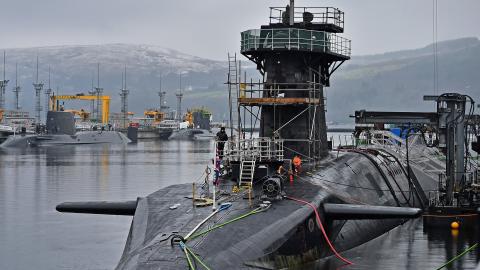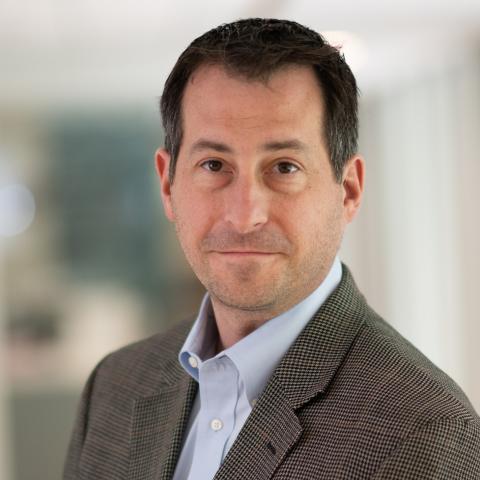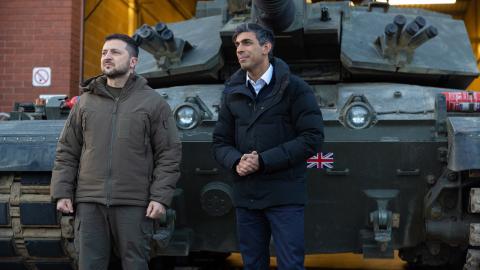
The Future of the Atlantic Alliance with David Lammy and Jim Risch


Shadow Secretary of State for Foreign, Commonwealth, and Development Affairs, United Kingdom
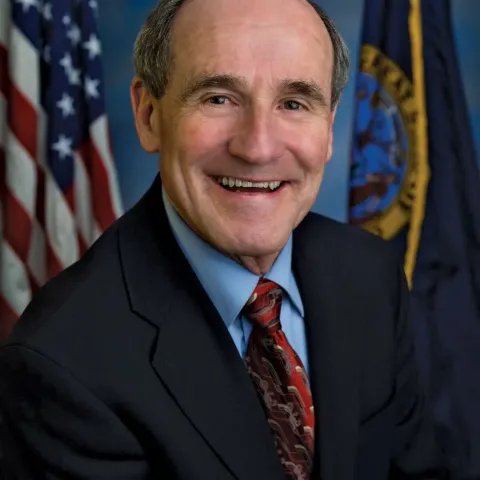
United States Senator, Idaho, and Ranking Member, Senate Foreign Relations Committee

Ravenel B. Curry III Distinguished Fellow in Strategy and Statesmanship
Walter Russell Mead is the Ravenel B. Curry III distinguished fellow in strategy and statesmanship at Hudson Institute.
Join Hudson Distinguished Fellow Walter Russell Mead, United Kingdom Shadow Foreign Secretary David Lammy, and Senator Jim Risch (R-ID), the ranking member of the Senate Foreign Relations Committee, for a conversation about the challenges and opportunities facing the transatlantic community and the future of the special relationship.
Event Transcript
This transcription is automatically generated and edited lightly for accuracy. Please excuse any errors.
Walter Russell Mead:
Good morning everyone. I am Walter Mead. I’m the Ravenel Curry III Fellow here at Hudson on statecraft and strategy and I’d like to welcome you to this meeting. Hudson Institute, which we are a nonpartisan group that does not lobby or such things, but we do have some core beliefs and one of those is the importance of American allies. And at a moment when one of our closest allies, the United Kingdom, is in the middle of what could be a very interesting election campaign with far-reaching consequences, we’re very honored to have with us this morning David Lammy, who is a member of Parliament and the shadow foreign secretary. That is to say while Labour is in opposition, he sort of acts as the party’s spokesperson and leader on these issues and tries to make the life of his opposite number as difficult as possible on the floor of the House of Commons. He was a member of the previous Labour government from 2001 to 2010 and served as shadow justice secretary from April 2020 through November ’21.
Mr. Lammy is the son of Guyanese immigrants and grew up in working-class London before graduating from law school in 1993. He then went on to be the first Black Briton to attend Harvard Law School. That must have been an interesting experience. He is also the author of Out of the Ashes: Britain After the Riots, a book about the 2011 London riots.
And with him to engage with him and with all of us in conversation this morning is Senator Risch who was elected to the United States Senate in November of 2008, after serving as a state senator in Idaho and had a career in small business and law before his entry into politics. He is the ranking member of the on Senate Foreign Relations Committee. He holds a number of other serious posts in the US Senate and is I think one of the real leaders of the current Republican Party in thinking about international affairs.
So I think we could not have two better people with us this morning to discuss these issues. I’d also just like to say a word to welcome the British Ambassador, Karen Pierce, who is very kindly joining us this morning. And she has been Britain’s ambassador to the US since March of 2018. And before that she was the Director General of Political Affairs and Chief operating Officer of the Foreign and Commonwealth Office in London from 2016. Also served in New York with the United Nations. That’s right.
So we have a great group. The plan is that Mr. Lammy will give some remarks, we’ll hear some thoughts from Senator Risch and then I will try to bring the two of them into conversation, which I don’t think will be that difficult. And after that we will open to questions from the audience. Thank you very much, Mr. Lammy.
David Lammy:
Well friends, thank you very much for having me here at the Hudson Institute today. I’m very grateful, Walter, to you for your invitation. And Senator Risch, thank you for joining me. It’s a real honor to be here, a place that is transatlantic as well as bipartisan. I’m perhaps a little unusual for a British politician. I’ve been to the United States more times than I’ve been to France. I’ve lived in America, I’ve studied in America, I’ve got family in America. My father is buried in Texas. In a sense, from Crown Heights to the Bay Area to Harvard Yard, I’ve got a powerful sense of this country and it’s why I would describe myself as an Atlanticist, an Atlanticist who believes fundamentally in the bond between our two countries. And I’m a man made of the Atlantic. My parents were from the Caribbean. Their siblings spread out from New York to Toronto to London. And I share something deep with millions of Americans because if I have the privilege to be the next UK foreign secretary, I will be the first to be able to trace my lineage back through the Atlantic slave trade.
Friends, today is a date that my parents would’ve known by heart, May the 8th or VE Day, Victory in Europe Day. There is no better day to remember we are unstoppable together and there is no better day to think of the risks we have faced together and faced still. It was a great Washingtonian who many of you here in the room knew, Zbigniew Brzezinski, who prophesized the danger we face now. “Potentially the most dangerous scenario,” he wrote, “would be a grand coalition of China Russia and perhaps Iran, an anti-hegemonic coalition united not by ideology but by complementary grievances.” This I think risks coming upon us. Russia and Iran are already making common cause. We see this when we see Iranian Shahed drones striking Kharkiv and attempting to strike Israel, only to be shot down by the United States Air Force and the Royal Air Force from the UK. We see this in North Korean shells being fired at Ukrainian defenders in the Donbas and we see this in the political and material support China has given to the Kremlin. While they have not supplied lethal aid, they have helped reconstitute its military industrial base with dual-use technologies, helping to rebuild an army that is killing Europeans. China should not throw its lot with Putin’s coalition of Moscow, Tehran and Pyongyang.
Friends, as our rivals deepen their cooperation. We must deepen our cooperation with allies to face what might be a generational challenge. NATO will always be the bedrock of our security architecture alongside our nuclear deterrent, but we must seek new partnerships to face this newly dangerous world knowing that security in Europe and security in the Indo-Pacific are connected elements of a single geopolitical theater.
The next Labour government will not rejoin the European Union, the Single Market or the Customs Union of the European Union, but we think it is fundamentally wrong that the current government has created a situation where the UK has no structured foreign policy cooperation with the European Union whatsoever. There is a far greater cooperation between the European Union and the United States. And that is why Labour will seek to establish a new geopolitical partnership with Europe enshrined in a new UK-EU security pact. European security will be our number one foreign policy priority. And this is an asset for our alliance with the United States because with the Chinese navy now the largest in the world and Chinese shipbuilding capacity 230 times larger than the United States, we understand that the United States priorities will focus increasingly on the Indo-Pacific and that the European continent must do more to look after its own backyard.
Friends, even when I was at Harvard during the Balkan Wars, the United States was asking Europe to do more for its own security. Who said this, “Rebalancing NATO’s burden sharing and capabilities is mandatory, not elective?” That wasn’t President Trump. That was Chuck Hagel my friend, Barack Obama’s defense secretary. Ever since President Kennedy, the United States has been asking for Europe to do more. And friends, we hear you faced with the rise of China, we must shoulder our part of the burden in Europe.
My friend, Senator Vance, is right to say we in Europe have a problem that we need to fix with higher defense expenditure. It is a scandal that the current government have hollowed out our armed forces to reduce troop numbers to the lowest since the Napoleonic era. The last Labour government left office spending 2.5 percent of GDP on defense. It has never reached that level since. And the next Labour government, thanks to my friends John Healey, our shadow defense secretary, and of course our leader, Keir Starmer, is totally committed to reach 2.5 percent as soon as we can in a responsible way.
The pandemic followed by the war in Ukraine demonstrated the risk of supply chains over-reliant on China and those driven only by economic efficiency. And that is why Labour’s next chancellor of the exchequer, Rachel Reeves, has set out a new economic doctrine of securonomics, putting much trade await on the resilience of our economic relationships. The laissez-faire policy of David Cameron’s golden era of UK-China relations still hangs over the United Kingdom. The government does not know the full extent of Chinese influence within UK universities research institutes and critical national infrastructure. A major focus for the next Labour government will be to identify these vulnerabilities, the yard around which we must elect a much higher fence. And that is why the next Labour government will launch a comprehensive audit of UK-China relations on entering office. Our strategy will be based on three Cs. We will challenge where we need to, we will compete where we must and we can cooperate together where we can.
In the face of Vladimir Putin’s illegal invasion, the UK is united in standing with Ukraine until it wins. So as a Brit and as a European, I want to say thank you to the United States for the support your country has given Ukraine since the start of Putin’s, full-scale invasion. The 61 billion, which just passed Congress, is in addition to the 75 billion US dollars you’ve already provided. Your support is not just for Ukraine, it has helped defend our whole continent and our whole alliance. President Biden deserves our enduring praise for securing this, as does Speaker Johnson for ensuring bipartisan support.
This brings me to President Trump, a leader whose attitude to European security is often misunderstood. I do not believe that he’s arguing that the United States should abandon Europe. He wants Europeans to do more to ensure a better defended Europe. Were his words in office a little shocking? Yes, they were. Would I have used them? Probably not. But US spending on defense actually grew under President Trump, as did the defense spending of the wider alliance during his tenure. When he began his campaign, only four European countries were spending their 2 percent of GDP on defense. The number was 10 by the time he left office and it is 18 today.
I tell my European friends, don’t personalize this. Do more is the American ask whoever wins. This is not because of a weakening of the transatlantic bond, but because of the geopolitical reality in the Indo-Pacific a region in which the next Labour government will play its part. We have an unshakable commitment to NATO, but we are rock solid behind AUKUS and our commitment to the Indo-Pacific too. We are the United Kingdom, totally committed to our special relationship, totally committed to freedom, totally committed to democracy. Britain will always work with the United States. Whatever the weather, whoever wins, if Keir Starmer’s Labour Party wins the privilege to serve, we will continue to do the same. Thank you very much.
James Risch:
David, thank you. Welcome back and it’s good to see you again. It was good to get to know you at the Munich Security Conference. As I told you that you have an excellent representation here in the United States. Karen is with us this morning and has become a great friend for Vicki and I here. Tell you her credibility, Vicki and I hadn’t had a vacation in years. We decided last month we’d go spend a little time in UK. And Karen helped us design that trip and did an excellent job of it. We relied on her. So that’s the kind of reputation she has here in the United States.
Look, those were really good words to hear from you. Certainly, to be honest with you, I can’t hear much to criticize and should you be fortunate enough, your party be fortunate enough to win, I think that the battle plan that you just outlined will be really a good thing for all of us.
I want to thank the Hudson Institute for hosting this discussion. Again, I haven’t been gone very long, I was here not long ago talking about my bill that was designed to seize Russian assets called the REPO bill. And we’re making progress with it. Not as fast as I’d like always, but nonetheless we are making progress with it. It’s encouraging to hear your vision for building out the British military and making it an even more capable partner, particularly I enjoyed your remarks about your comments to European allies that this is not personal. This is a matter that demands our attention and your numbers about when President Trump took office, only three of the countries were making their contribution, 10 when he left. And thank you Vladimir Putin for strengthening NATO even more than that. We’re at a number that is getting closer to where we need to be. And we need to be at 100 percent, and this is not personal.
I discuss this with my European friends all the time and they used to bristle more when we talked about it. Now they have a very different view of it, but it’s been a long time since Europeans were dying in the battlefield and it’s no longer a matter of theory, but a matter of this really needs to be done. And really certainly NATO was put together to push back on Russia, but it’s becoming obvious that the need is significantly greater than just Russia. The world is changing, as we know. And you made some reference to that and I’ll close with that when I get to the end here.
Thank you for your commitment to AUKUS. I think it’s a great idea. I’ve been at it since we were on the ground floor of it trying to make it work. It’s a great idea. We really need to continue to pursue it. I’ve been greatly disappointed only by the fact that we’re not moving nearly as fast as we should, and I’m not being critical of you, I think the problem lies here as much as anything else. And part of it has to do with trying to make our laws compatible when it comes to technology transfer. And I’m pretty impatient on that.
My country is being critical really of our two partners on this with the laws that are in place, which is strange to me because we all know that we are a country of laws. We are a country that believes in the rule of law, as Great Britain does. And where do we get ours? From Great Britain. My first case in law school I read was a British case that was . . . in fact, I had had trouble understanding it because it had a lot of the Middle English in it. But that’s where our laws come from and we really need to work more closely and get this done. Russia’s kleptocrats must no longer be able to hide their ill-gotten money in law-abiding nations. And that’s what REPO is all about. And again, I’d encourage you, okay, to develop and pass similar legislation. I know that hearing what you said, you’re there and I congratulate you on that. I’m glad Congress finally passed the supplemental for Ukraine. We need to move forward with that.
And let me close with just joining you in your remarks about the state of the world today. And I have said, in fact, I think last time I stood at this podium I said that the difficulty on the planet today is we are very rapidly, if we aren’t already there, getting to a point where the world is bipolar. And that is on one side you have the autocracies, the China, the Russia, Iran, North Korea, Cuba, Venezuela, and a handful of other no-goodniks that have joined together to push back against the freedoms that we enjoy and democracy and the capitalist system. And they’re getting closer and closer, as you pointed out, with the kind of cooperation that they have.
The rest of the world is made up of course of some very much pure democracies and ones that are trying to get there. And I think the real challenge for this century is going to be that we learn to live on this planet together. That doesn’t mean we have to agree with each other. We won’t. China’s not going to change. Russia’s not going to change. And we certainly aren’t going to change. That doesn’t mean we can’t share the same planet, and we’re going to have to. And the only way that can be done is if the relationships like the relationship between the United States and United Kingdom blossom and continue to move forward and get stronger because certainly we have disagreements, I occasionally even have disagreement with my wife.
But the closer you are, the better you can resolve disagreements. And that’s very important because our basic beliefs, the tenants that we live by are very close between us and UK and other of our allies. And it’s really important that we nurture those because as you made reference to China and Russia are going to continue to move in that direction and continue to push back against us to supplement what we have or to remove what we have and move our countries closer to the kind of philosophy that they live under, which is reprehensible to all of us.
So with that Walter, we’ll enjoy hearing your probing questions and we’ll go from there.
Walter Russell Mead:
Thank you. Very helpful. And for those in the audience here and those who are watching us as this is being live-streamed, may be worth putting in a little bit of history at the moment that cooperation between the US and the UK has been bipartisan for a very long time. Perhaps the greatest exemplar of that was Sir Tony Blair who managed to be, I think both the closest associate of President Clinton and then of President George W. Bush. This is a feat that a Talleyrand or a Metternich could admire. But if we think about what we’re going to see possibly if former President Trump is returned to office in the fall, Mr. Lammy, what would you see as the points of tension or difficulty that you would need to work hardest about to keep the relationship on track in a second Trump term?
David Lammy:
Well look, there’s clearly a trend, I would say, in Western democracies. The trend centers on two themes. One is economic. Working class communities in middle England, working class communities in middle America, but this would be the same phenomenon in Germany, in France, in Italy, Canada, really, really struggling and demanding of their politicians that they really attend to the basics, they attend to issues like inflation, they attend to the public services people rely on. And that does mean that we have to understand that domestic is everything, you win and lose elections on the basis of that. And I totally get the agenda that drives, if you like, America first. I get that agenda. And that’s going to mean that for all of us, there are challenges and I don’t see that dissipating over this next period.
The second agenda, that’s again a theme across Western democracies, I think it was J.D. Vance that really landed this in my mind, is borders. In Europe there is a debate about borders because people are fleeing the Horn of Africa. Climate is driving a lot of problems. Governance issues in many of those countries is driving a lot, a lot of issues. Jihadism is a real problem by the way, and people are fleeing and they’re entering Europe. And that leads to a debate that we have in the UK about border security. Over here, the debate about fentanyl that actually was part of holding up that money for Ukraine is about borders in the end, and some of the challenges with your . . . what would we? Mexico just next door. So those are tensions that run through the system, require politicians to respond. Donald Trump has his particular style.
I’d say this other thing, this other theme that has had an impact, I think Senator Risch would agree with this, has had an impact. I’ve now been in public service 24 years. I know when I arrived in UK politics, people said this is the young Denzel Washington of the UK system. And today it’s more like the slightly older Forrest Whitaker. But it’s 24 years I’ve been in public life, and the last 10 or 12, social media has dominated. I hope that we’re moving away from the tendency, I think if we look back five years ago, to tweet about absolutely everything in the moment. And I hope that we’re a little bit more conscious how our opponents are really winding up the system in relation to that.
So there will be tensions, but in the end, the nature of our shared intelligence capability, the best in the world, our military endeavor together and we saw that across the skies of Israel and Jordan just a few weeks ago, and our shared interests in pushing back against this authoritarian cabal that’s coming together, I think means that we will overcome the wrinkles when they appear.
James Risch:
Well first of all, let me say welcome to public service. My first election was November 3rd, 1970, so I don’t think . . . So welcome. But I will say this, you’re learning well because the two issues you defined in the very good rhetorical way are the two that are going to decide the election here, and that is economics in the border. Donald Trump won last time on those two issues. If he wins this time, he’s going to win on those two issues.
And they certainly are . . . For us, we debate what America first means. The American public knows what America first means and it’s their kitchen table. That’s America first. And you’ve identified that as being what drives them in the polling. We all talk about foreign relations and you’re . . . I’m always impressed with how dialed in my European friends are on foreign matters. American people aren’t nearly as dialed in on that. And you can argue about why that is, maybe we’ve got the two oceans and all that sort of thing, but it’s different here. And domestic issues, what’s true there is true here, but even to a much greater degree. And I think that you’ve identified that correctly.
Walter Russell Mead:
Well, to drill down a little bit more, I can think of, myself, of a couple of very concrete issues where, as I’ve read your interesting article in Foreign Affairs, which I would recommend to everybody on progressive realism to understand really where Mr. Lammy’s vision for the future British foreign policy is coming from. Climate change and the fight against climate change in a multilateral set of forums was really identified as a critical pillar of British foreign policy in a Labour government. I doubt that in a Trump administration, that would get a lot of play from the administration. How would you try to handle that issue?
David Lammy:
Well, Walter, I think this is my seventh visit to DC since stepping into this role in November, 2020. I’m told, but this audience can correct me if I’m wrong, that when you look at some of the fallout of the Inflation Reduction Act and the activity, the industrial capability to move in the direction of dealing with the climate emergency, particularly here in the United States, that actually a hell of a lot of that activity is in the red states. And I’m told that it’s unlikely that that’s going to come to a grinding halt for very sound economic reasons.
So it may be that some of the broader issues in relation to the climate emergency and the rhetorical positioning is different. I accept that to the Biden administration. We in the UK would say that we want to lead a clean power alliance, we think this is really important, and we cannot leave the turf to China. Cannot leave the turf to China. We have to act together on these issues. The fact of temperatures rising I now think is self-evident. How we deal with the consequences of that are really important. I hope that America will continue to ensure that its allies are aligned in this cause and I think there’s much that we can do together to find that common ground.
Walter Russell Mead:
Senator Risch, do you have any thoughts about how climate might play out?
James Risch:
In the election? The administration?
Walter Russell Mead:
Or in assuming a second Trump term, how that would work in US-UK or US-European relations?
James Risch:
Well, from our standpoint, from the red standpoint, if you would, Idaho is the birthplace of nuclear energy in the universe. We have the Idaho National Lab there. We have the first three light bulbs ever lit by nuclear energy. To us, clean energy is very, very simple, and it’s something that we’ve been working on for a long time. We’re huge proponents of that. There is a revolution going on in the nuclear industry. There’s a real reawakening, with the exception of perhaps the Germans, and I think they may even be waking up, but there are some things happening, which I think most people don’t pay attention to. And that is for years we’ve been building these great big behemoth nuclear reactors that cost $5 billion a piece.
At the Idaho National Lab. They have developed what’s called the SMR, the Small Modular Reactor, and they’re about to come online with those and it is going to revolutionize energy around the world. And they’re doing something that I’ve been after them for a long time on. One of the problems is with any industry, they get in their mind what they want, and they like those great big things. I want them to build a small one. I said, “You can do better.” And they are actually designing a micro now, which will even revolutionize things more. For years, they said, “Well, we can’t do that.” I said, “Guys, every ship we have is driven by a nuclear reactor. If you can build one for a ship, you can put one on a trailer.” And they have finally come around to the idea that this is something that’s going to change the world, and it will change the world.
David Lammy:
Well, just a quick maybe think also, let us not underestimate the huge R&D capacity of the United States and the UK combined. AI is also going to transform this conversation in relation to what we can do in terms of energy, what we can do in terms of climate. And it’s hugely important that we are working together as countries with other colleagues in Europe and beyond, again, to ensure that we do not cede this ground to others with a different agenda.
James Risch:
And they will try to take that ground and are trying to take that ground.
Walter Russell Mead:
Since the atrocities of October 7, we’ve seen an explosion in anti-Semitic speech and action in both the US and the UK on campuses and on the streets of major cities. And we’ve seen in both the extremes, left and right, in both countries, a really troubling surge of the politics and the language, and in some cases the action of hate. How were both of you thinking through this challenge and how would a Labour government in the UK deal with these problems? And Senator Risch, how do you think the Republican Party should be fighting anti-Semitism? Either one of you care to start?
James Risch:
Well, I think, first of all, I think everybody, every thinking person is disgusted and dismayed with the anti-Semitism that is really blown up, and without grounds. I mean these kids that are out there supporting Hamas, all I can of is do they really know who they’re supporting? Have they seen the pictures from October 7th? I mean, what did they think that Israel was going to do after that happened? And to be defending Hamas the way they are, they say, “Well, it’s Palestinian.” They’re defending Hamas. You can use the word Palestinian. They’re defending Hamas and it’s reprehensible.
The good news is there’s 330 million people in America, and I’ve seen the videotape of what’s going on at the various college campuses. I don’t know what percentage that is of 330 million, but it’s a really, really small and insignificant amount. The thing that has surprised me a bit is that the protests that are going on on these college campuses don’t have a corresponding support amongst the general population. It’s kids, it’s kids on campus. And for all of us that were on a campus at one point in time, can understand how these kinds of things happen. But generally speaking, when we’ve seen protests in America that truly are attacking what we are pursuing in America, it has a component that is substantially larger than that.
So I guess from an optimistic standpoint is reprehensible as all this is. It is a very small minority and it isn’t being picked up by the rank-and-file Americans. So I take heart in that, but I have no patience whatsoever for the support of Hamas. Anybody who can’t look at these two entities, Israel and Hamas, and not make a determination as who the good guys are and who the bad guys are, these are people that are very simple-minded.
Walter Russell Mead:
Mr. Lammy, I know that part of the internal politics of the Labour Party have been the move away from really some very troubling elements under the previous leader of the party. Where does that fight stand and how does Labour intend to carry forward on these issues?
David Lammy:
Walter, 25 years ago, because of an American TV show called L.A. Law., L.A Law had this wonderful young Black lawyer in it, I decided that I was going to apply to Harvard Law School. I got in, but I didn’t have the money to go. And four Jewish lawyers made it possible for me, as a young Black man, to go to Harvard Law School. So I have always been very close to the Jewish community. I thank them for their generosity and their support at that time in my life. And I’m very privileged to represent the Stamford Hill area of London, which is the historic home of Britain’s Jewish population, people fleeing pogroms in Europe at the turn of the last century.
It was one of the lowest periods of my political life standing outside of Parliament, protesting against what had happened to the Labour Party under the leadership of Jeremy Corbyn and saying, enough is enough because of the anti-Semitism that had grown up in that period. And one of the reasons why I chaired Keir Starmer’s campaign to run the Labour Party was because I knew that he would clean us up and get rid of this anti-Semitism. He would change the party. He did that, he’s done that and made us as a consequence, electable again. And a lot of those anti-Semites have been driven out where they belong.
Look, we are democracies. In democracies, people have a right to protest and to make their voices known. But look, I’ve always been clear that there is a difference between protest . . . And I’ve been on my share of protests over the years. I remember protesting against apartheid when I was younger. There’s a difference between peaceful protest of the kind that Mandela would’ve advocated and violence and rioting. And again, I’ve seen my share of that in the constituency I represented on which I wrote my first book. And we have to stand against that.
And I do get concerned the bandwidth of Western democracies is growing somehow thinner. Look, I’m outraged by what’s happening to ordinary folk in Sudan, in the Democratic Republic of the Congo, in Yemen, in Haiti. Why are we not really up in arms about these issues as well? I say gently to those that are concentrating singly on a very ancient and terrible, terrible war that is taking place, of course in Gaza, but let’s not crowd out a lot of people suffering in our world today and underlining the fact that the UK and the US has got to stand firm on so many fronts at this time.
Walter Russell Mead:
Let me ask my last question and before going to the audience, and that would be, when we look at the Middle East or even globally, one of the key factors, I think, has been the success of Iran in challenging the international order in the Middle East. And today, it has really never been closer with Hezbollah, with Hamas as proxies. The Houthis in Yemen have extended their stop on shipping from the Red Sea. They are now threatening commerce across the Indian Ocean. Iran has never been closer than it is today to a nuclear weapon. What should be done now about this situation?
James Risch:
Let me take a run at that one, Walter. First of all, I would challenge your premise a little bit. And that is for the years that I have been doing this, I am, believe it or not, optimistic about the Middle East. I think history will look back and look at the Abraham Accords as a real turning point. And the Abraham Accords weren’t in and of themselves the foundation of it, the Abraham Accords were evidence of the fact that the Middle East is changing. Now, why do I say that? I talk all the time with our friends in the Middle East, and some of them aren’t too friendly in the Middle East, but the Arab countries, for a long time, Iran had been able to muster all the Arab countries by saying, “Look, Israel’s our enemy. We’re all in this together,” blah, blah, blah. Today, if you use the word Arab in these conversations, frequently they will stop you and say the Iranians are not Arabs, they’re Persians. And I never heard that. I never heard that.
And that is again, to me, evidence that they now recognize that they, the Arabs, have a different view than the Persians do. They want better for the next generations of Arabs that are growing up than what they’ve had in the recent generations. And they look at Iran as being the one that is stirring all this up. So they’re tired of Iran, and to a large degree, they’re tired of the Palestinians. I mean, the Palestinians fainted when they heard about the Abraham Accords. And the current war that’s going on there, in my judgment, was precipitated as much as anything by the Iranians directing their proxies to pull the trigger because they knew, as we all knew, that Israel and Saudi were coming very close to a normalization, maybe not exactly the same as the Abraham Accords, but a normalization.
So look, I think Iran is becoming more and more and more isolated. If you took Iran out of the equation, you would be taking their proxies out. You’d take Hezbollah out, you’d take Hamas out, you’d take the Houthis out and some of the other Muslim Brotherhood organizations, if you took that off the playing board, the Middle East would be a pretty good place, really. And it all comes down to Iran and they’re becoming more and more and more isolated.
Walter Russell Mead:
Okay.
David Lammy:
Three things very quickly. The first is, and thank you for referring to my Foreign Affairs article, essay on progressive realism. And I’ve been really, really clear that the realest bit of the progressive agenda that we will deploy in office means working with our partners in the Gulf, particularly Saudi Arabia, UAE, speak to them about Iran and what they’re up to. And you cannot forge a more stable Middle East environment without partnership with those countries. It’s absolutely essential.
The second thing, and it relates to this protest. I read the book, I watched this show, Handmaid’s Tale. Which country is closest to that on the planet? I think Iran’s pretty close. I mean, try being a woman, try being young and wanting freedom and hope. And so we have to stand against this and we have to work with allies in the region to stand against this tyranny.
And third, as a European, but we have a Iranian-sponsored drones flying over Ukraine as we speak also speaks to this axis of aggression that is building up that we have to be really clear on. And it’s why, again, whoever wins the election in our country or in the United States later on this year, we will be firm allies against that possibility.
Walter Russell Mead:
Thank you. Do we have any questions from the audience? Yes, sir. Can you introduce yourself quickly and wait for the mic? Yes.
Tony Diver:
Hi, I’m Tony Diver, I’m the US editor of The Telegraph. Can I just ask, David, can I ask you two questions, if you don’t mind? First-
Walter Russell Mead:
You’ll only answer the easier of the two. So think about that hard
Tony Diver:
I’ll leave it up to you then. Hopefully they’re equally difficult. The first one, can I just push you on this 2.5 percent defense spending commitment? You talked a lot about how important it is and why you think it’s crucial the UK does it, but you’ll only say that Labour would do it when the situation allows. The government said that they would do it by 2030. So should we interpret from that that you’d like to do it sooner than 2030 if possible? Or why can’t you put a clearer date on that for us?
And secondly, you described Donald Trump’s comments in office as shocking. At the time, you described him as a racist and a Nazi sympathizer, and you said you would join a march in London against him when he came to visit. In light of the fact that you might find yourself foreign secretary while he’s president, do you regret those comments and do you think that it’ll make your job harder?
David Lammy:
The first question you asked me, look, I’m long enough in the tooth to know that when the Labour Party either gets kicked out of office or doesn’t achieve office, it’s usually because the public have concerns about how fiscally responsible we are. And I’m really grateful that Keir Starmer and Rachel Reeves have been quite as fiscally responsible as they are being. We’re not in office. We haven’t been able to look at the books. What we’ve said is that we will have a strategic defense review begin on day one. We may get to the 2.5 percent before 2030. But I am really clear that Keir Starmer, a former Director of Public Prosecutions, is very serious about that commitment and understands both the legacy that we had previously where we left office with 2.5 percent, but also the dangers that we’re facing at this time.
On your second point, look, I don’t think that foreign policy has to be, and it certainly isn’t in the UK system, an unnecessarily partisan business. If David Cameron was sitting in this seat, and I’m sure he has sat . . . And I don’t know if he should have sat in the seat at Hudson, if he hasn’t, I’ll tell it when I go back to London, if he hasn’t. He actually wrote a book in which he described Donald Trump as misogynistic, xenophobic, a whole range of things. You are going to struggle to find any politician in the Western world who hasn’t had things to say in response to Donald Trump, you’re really going to struggle.
If I have the privilege of becoming foreign secretary, I am acting in what is the UK national interest as a front bench MP, and I take that very, very seriously, particularly in relation to the portfolio I have. And so where I can find common cause with Donald Trump, I will find common cause. I have many friends in the Republican Party, I’m a good Christian boy. So there are places where I can be described and have been described as small C conservative Labour politician. And so notwithstanding what one can get caught up in on a day-to-day on the back benches, I take very seriously the responsibility if I have the privilege of becoming foreign secretary. And I would hope that that would be the case whoever was sitting in this chair.
Walter Russell Mead:
I might just add that this appearance by David here at Hudson is part of a real outreach that he is making, and a number of Republican Senators, I believe, are having private meetings with you while you’re here. So he has his ear to the ground. What he’ll hear, I don’t know, but his ear-
James Risch:
Well, I’ll tell you, he’s making progress too. I read his article, Progressive Realism, and I told him as a Republican, I can go halfway. We’re really big on realism. This progressive stuff, eh . . .
Walter Russell Mead:
Yes, back there.
Mike Watson:
Hi, I am Mike Watson from Hudson Institute. I had a question for both of you about the future of European security. So Mr. Lammy, you were saying that you think that the closer British and European security cooperation is going to be important going forward. And Senator Risch, I know that both of you have been around during various debates about European strategic autonomy versus NATO and whatnot. What are the actual benefits of moving toward a British-European security framework outside of NATO? And what is the view, Senator Risch, of the Republican Party about what steps Europe should take going forward? Is a separate entity a bonus, or should we stick with the NATO framework? Thank you.
James Risch:
Well, let me say this. The devil’s in the details of that. First of all, the European countries are certainly welcome and encouraged to have their own architecture for defense. And I have no issue with that at all. I know this question comes up in a context of, oh, we have this disagreement. Not necessarily, again, I have no qualms whatsoever about any European country, either singly or in bilateral occasions or together creating architecture for their own defense. Indeed, it should be encouraged. Having said that, it is really, really important knowing how these things operate on the European continent, that NATO and any defense organization amongst the NATO members work like this. And as long as that happens, we’re all going to be stronger for it. So I have no issue with that.
The 2.5, we wind up having a lot of debates about that. And look, number one, we all agreed to 2.5. This is an agreement. This isn’t something the United States is trying to say, “You do this.” This was an agreement by all parties to do that. And I think that the efforts, particularly the ones that have gotten there, are to be commended, and the rest need to redouble their efforts. Because if the naysayers of NATO here in the United States, that is a pretty small group of people. They get a lot of ink. It’s easy when you criticize to get attention, but by and large, there is strong, strong support for NATO. And my friends in Europe, I tell them that if you want to get us closer together, pay the 2.5 percent or get to the 2.5 percent because that’s what the naysayers use to say, “See, they’re not paying their fair share.” Look, we want to pull this wagon together. I don’t view the issue of Europeans creating their own defensive posture as being a negative at all. It’s just how it works.
Walter Russell Mead:
David?
David Lammy:
Look, let me just say something has gone very wrong when South Korea are sending more 1.55 millimeter shells to Ukraine than the whole of the European family combined. This is a wake-up call. And yeah, Putin’s increased munitions manufacturing capability has woken us up. That’s why our offer, the Labour Party’s offer to the European Union is a new security pact, understanding that France and the UK represent 50 percent of Europe’s defense capability as we speak, or European defense capability. And we’re hugely supported by the United States. There used to be this phrase, I remember when I was a lawyer, we were lawyer, you remember this phrase, we were lawyers. They used to say, lawyers are very good at spending other people’s money.
James Risch:
They say that about Democrats.
David Lammy:
Look, I think it’s reasonable for the United States to demand that 2.5 percent and we need to get serious about that.
Walter Russell Mead:
All right, well listen, we had a hard stop at 10:00, which I ruthlessly and unscrupulously violated by calling on David at 9:59. But let’s give a round of applause to our guests and thank you so much for coming.
James Risch:
Thank you.
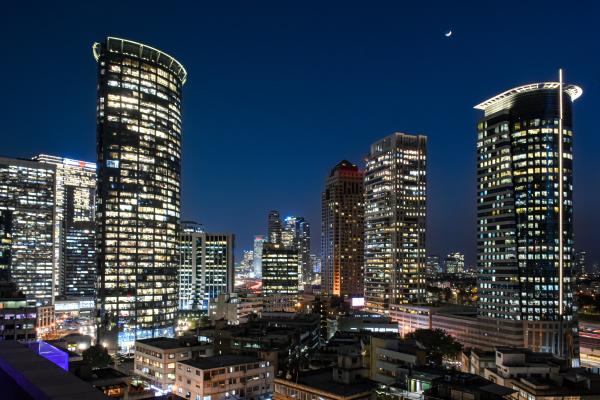


Join Hudson for an expert panel on why these deals are so important for both nations, what they mean for the future of US supply chains, and what potential challenges remain for implementing these deals.


Join Hudson for a conversation with officials who have been at the center of these efforts, expert financiers, and leading regional analysts on what the deal achieved, what comes next, and why sustained US engagement in the South Caucasus matters.

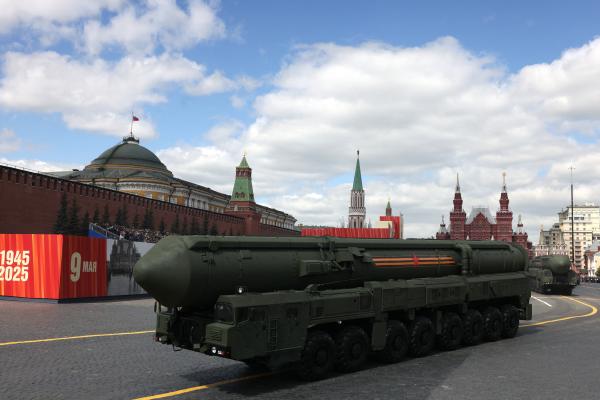
Join Assistant Secretary of State for Arms Control and Nonproliferation Dr. Christopher Yeaw for a discussion on strategic deterrence.


